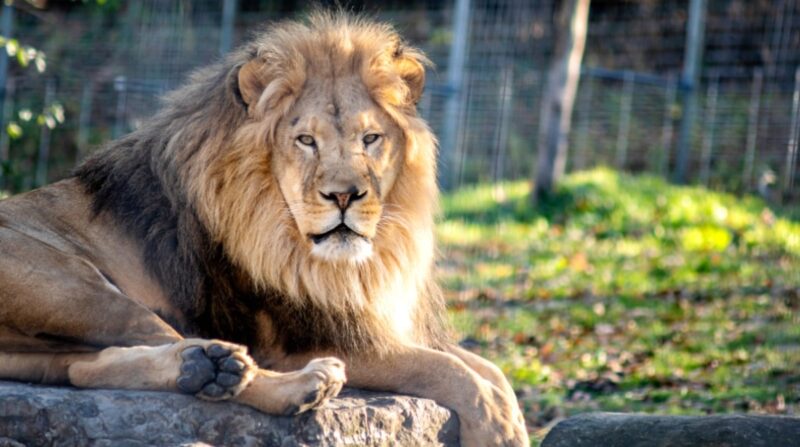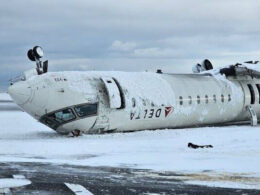In a horrifying tragedy at the Olusegun Obasanjo Presidential Library Wildlife Park in Abeokuta, Nigeria, a zookeeper was mauled to death by a lion in front of shocked visitors.
Abeokuta, Nigeria- The incident took place on Saturday, when 35-year-old lion handler Babaji Daule was performing a routine feeding demonstration.
According to eyewitnesses and official statements, Daule made a fatal error when he failed to properly secure the safety gate separating him from the lion. Feeling overly comfortable with the animal, he reportedly left the protection gate open while attempting to feed the ferocious beast. The lion seized the opportunity and attacked Daule in front of horrified onlookers.
In an official statement, the management of the wildlife park confirmed, “The zookeeper, apparently, feeling comfortable with the animal, left the safety protection gate open and proceeded to feed the animal. He was mauled by the animal and died on the spot.”
Efforts to control the situation proved futile, and the park staff were left with no choice but to euthanize the lion on-site to prevent it from further mutilating the body. The lion was put down shortly after the attack, confirmed by local police spokesperson Omolola Odutola. She explained that the animal had to be euthanized to avoid additional harm, stating, “The lion was put down to prevent further mutilation of the body.”
The tragic incident has sparked outrage and deep concern among Nigerians, with many questioning the safety protocols in place for managing dangerous wildlife in zoos. Social media platforms were flooded with reactions, as citizens called for stronger regulations governing wildlife parks and the handling of potentially dangerous animals. This isn’t the first time a zookeeper has lost their life under similar circumstances in Nigeria. Less than a year ago, another zookeeper was killed by a lion at Obafemi Awolowo University, which is also located in southwestern Nigeria.
Nigerians are demanding answers as they grapple with how a trained professional could have made such a critical mistake. They are calling for immediate reviews and reforms in the way zoos and wildlife parks are managed to prevent future occurrences.
Experts have warned that zoos must adopt stringent guidelines when handling dangerous animals like lions, tigers, and other predators. The importance of proper training, safety barriers, and emergency procedures cannot be overstated. Yet, as this incident demonstrates, lapses in these areas can have devastating consequences.
There have also been calls for authorities to conduct thorough investigations into the management of the Olusegun Obasanjo Presidential Library Wildlife Park and similar facilities across the country. People are eager to know what steps will be taken to ensure that no other lives are lost due to preventable accidents.
This tragic event adds to a series of similar incidents that have occurred in the past few years, raising broader concerns about the interactions between humans and dangerous animals in Nigeria. In many parts of the country, inadequate infrastructure, insufficient funding, and lack of regulation make it difficult for zoos to maintain optimal safety conditions.
Impact on Wildlife Conservation
Beyond the immediate tragedy of losing a human life, the death of the lion itself raises ethical concerns. Conservationists argue that killing the lion, while necessary to prevent further harm, is another sad outcome of the incident. Lions, which are already facing population declines in the wild due to habitat loss and poaching, are vital to many conservation programs.
Olusegun Obasanjo Presidential Library Wildlife Park, like many wildlife parks, serves both as an educational center and a conservation initiative. The loss of the lion means a setback for these efforts, and it highlights the tension between public safety and conservation goals.
In the aftermath of this incident, there is a growing demand for reforms. Experts suggest that zoos across Nigeria need to be held to higher safety and operational standards, with regular inspections and audits conducted by government agencies to ensure compliance.
Additionally, many believe that it is time for zoos to explore alternative, less dangerous ways to engage the public, such as virtual animal interactions, live camera feeds, or behind-the-scenes tours that minimize direct human-animal contact.










Join our Channel...